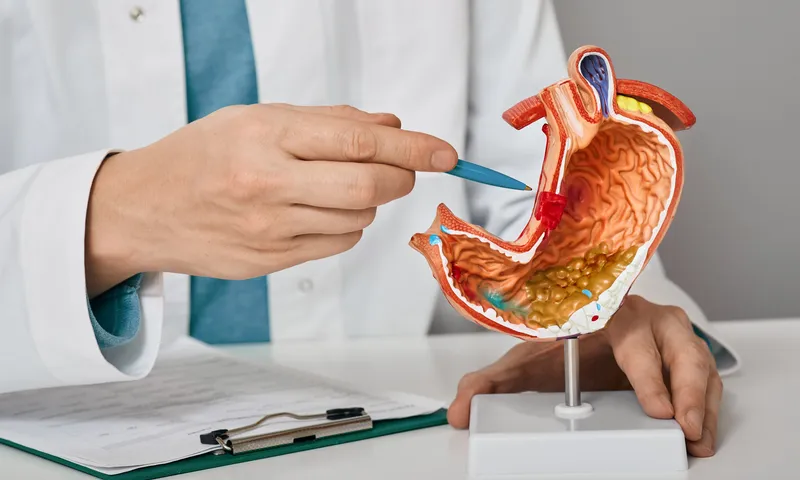Can a Stomach Ulcer Cause Weight Gain

Stomach ulcers are painful sores that develop on the lining of the stomach or small intestine. They’re often caused by Helicobacter pylori bacteria or long-term use of medications like NSAIDs. Most people associate ulcers with weight loss because the pain and nausea can make eating difficult. But some wonder: can a stomach ulcer cause weight gain? The answer is a little more complicated. While ulcers themselves don’t directly make you gain weight, the way you cope with the symptoms and treatments can sometimes lead to changes on the scale.
Can Ulcers Cause Weight Gain?
When the stomach lining is irritated, eating can either make symptoms worse or temporarily relieve them. Some people find that snacking or eating small, frequent meals helps calm the burning or discomfort. Over time, this habit can add up to more calories than expected, leading to gradual weight gain.
Food choices also play a role. Many people with ulcers avoid spicy, acidic, or high-fiber foods that may aggravate their stomach and instead turn to gentler options. These are often starchy or carb-heavy foods like bread, rice, or pasta. While these choices may feel soothing, they don’t always provide the best balance of nutrients and may contribute to weight gain if eaten in large amounts.
Medication and Side Effects
Part of ulcer care usually involves taking medications that reduce stomach acid so the lining can heal. These include proton pump inhibitors (PPIs) or H2 blockers. Once the discomfort eases, some people may find themselves eating more again, which naturally affects weight. In rare cases, certain medications used alongside ulcer treatment, like corticosteroids for inflammation, can increase appetite and cause the body to hold on to extra fluid.
Lifestyle and Activity Levels
Ulcers can also change how active you feel. If you’re dealing with stomach pain, bloating, or nausea, you may avoid exercise or regular movement. When your activity level drops but your food intake stays the same, it’s easier to notice weight gain. Stress is another piece of the puzzle, since ulcers often flare during stressful times, and stress itself can lead to changes in appetite or eating patterns.
Managing Weight with Ulcers
It’s important to remember that weight changes from ulcers are usually indirect and manageable. Focusing on nutrient-rich foods that are gentle on your stomach can make a big difference. Cooked vegetables, lean proteins, and whole grains (if tolerated) are often easier on digestion while supporting your overall health. Drinking enough water and eating at regular intervals can also help keep your body in balance.
Most importantly, stick with your prescribed treatment plan. Treating the underlying cause and following your doctor’s instructions for acid-reducing medications will ease symptoms, making it less tempting to overeat for comfort. Once your ulcer heals, it’s often much easier to return to regular eating habits and activity levels.
Bottom Line
Overall, stomach ulcers don’t directly cause weight gain, but changes in eating habits, reduced activity, and certain medications can make it more likely. The good news is that with the right treatment and mindful choices, weight changes can be managed. If you notice significant shifts in your weight while dealing with an ulcer, talk with your doctor for guidance tailored to your situation.
IMPORTANT NOTE: The above information is intended to increase awareness of health information and does not suggest treatment or diagnosis. This information is not a substitute for individual medical attention and should not be construed to indicate that use of the drug is safe, appropriate, or effective for you. See your health care professional for medical advice and treatment.


